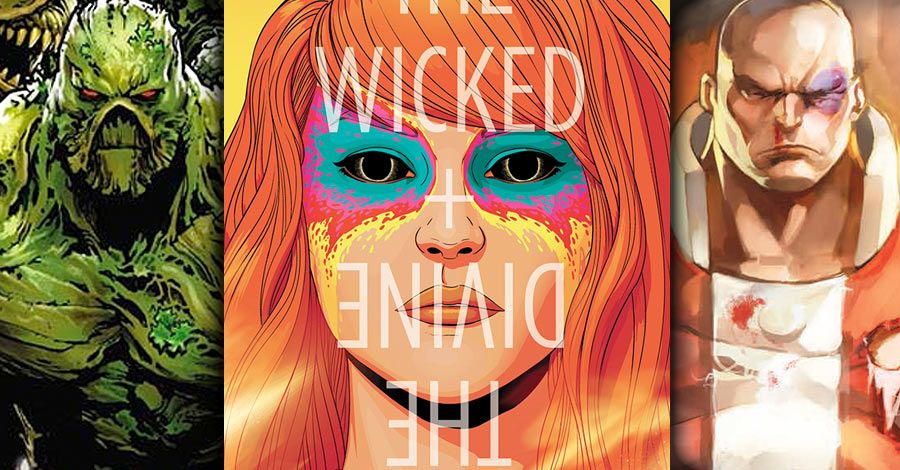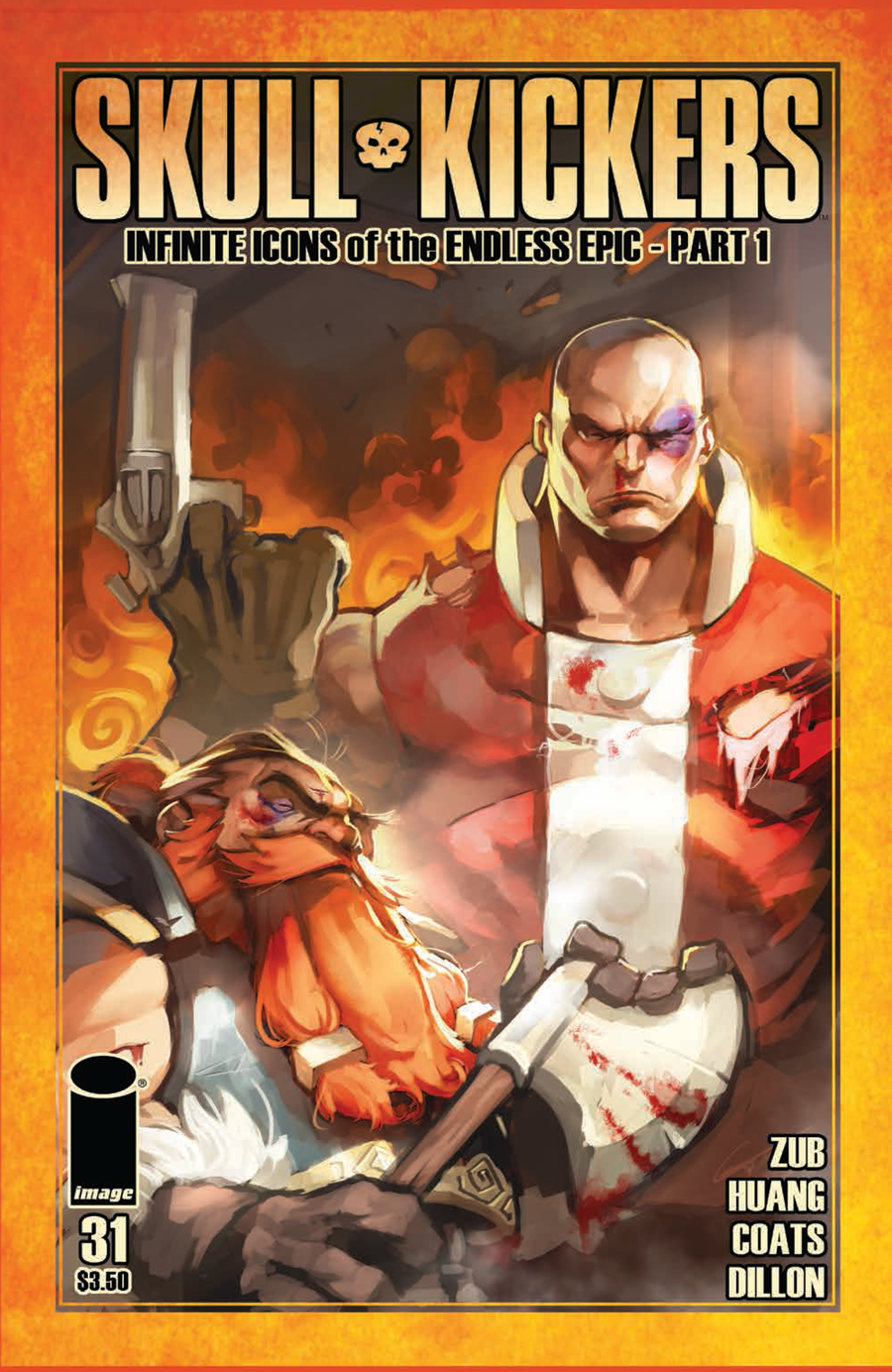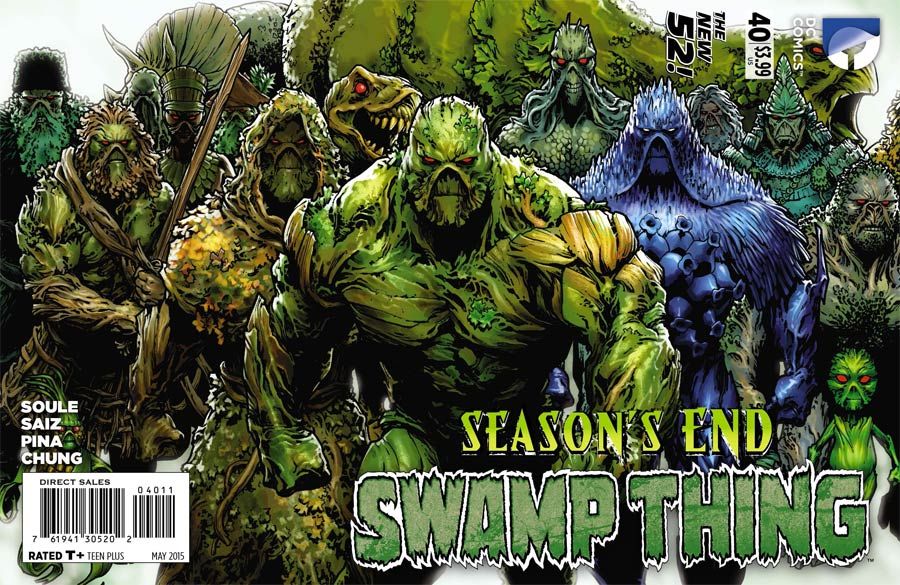Prospective writers trying to get hired by publishers often ask the same pointed question: How do I break into the industry? At times, it's unclear where these questions should be directed and who in the comic industry has the most authority or experience to weigh in on this topic. It's even more unclear how newcomers should go about the business of self promotion. This past weekend at Emerald City Comicon, comic writers spoke at the Writers Unite panel about how they got their start, with an emphasis on the importance of networking and getting your work out there for public consumption. "Wicked + Divine" writer Kieron Gillen, writer of "Swamp Thing" Charles Soule and "Skullkickers" writer Jim Zub all gave advice gained from their personal experiences climbing their way up the comic book industry ladder.
The panel started off with each creator talking about the beginnings of their respective journeys in the industry and how the routes they took got them to where they are today. "The point of this panel is to share some of the things that we've learned about breaking into comics, staying in comics, the right way to approach from a ground level perspective, how to take your idea and turn it into a published comic," said Soule. He continued to talk about how he got into comics while working as a lawyer. He wanted to do something creative on the side, so he started writing in his spare time and eventually started networking as well as going to conventions.
Soule then paused to point out to the audience, "Being at this show and at this panel is already a huge step in that direction. Hanging around shows, lurking on message boards... I started doing little short stories for different anthologies, networking with other people new to the business like me. My first published comic was 'Strongman.' From there, I just climbed the ladder. It took five years from when 'Strongman' came out to get up to 'Swamp Thing.'"
Soule Finds a Weakness in the Afterlife, Discusses Surprise "Inhuman" Return
Trying to get jobs as a creative professional in comics can seem daunting. One thing that everyone on the panel unanimously agreed on was that it's just as much about who you know as it is about what you know. You should do as much work as you can when you're first starting out, no matter how small, so you have something to show for it when someone is looking to see what kind of experience you have writing and making comics. One of the first questions asked of hopeful writers will usually be, "What have you done?" If you haven't done the work, people won't hire you, no matter how much you love reading comic books. Zub jokingly made an analogy to baseball, saying, "Have you ever pitched a baseball before? No, but I love baseball."
When talking about his own experience breaking into comics, Zub said, "I started to serialize a web comic while I was in art school. At the time a lot of the stuff online was in newspaper style strips. I started doing comics that I'd want to see, so I made 'Makeshift Miracle.' I put pages out every week, learning about the craft as I went. There was no deviantArt at the time, so bookmarking pages was everything." Zub went on to say that he got an e-mail from comics theorist and cartoonist Scott McCloud asking him to come to Comic-Con International. Zub has been going to the San Diego convention every year since 2002 and it took five years between making those initial connections and climbing the ladder before he really got somewhere. Zub also stressed that the social component of this industry is the best way to better yourself. "It takes time, not everyone is going to get to every level. It's the same in almost every kind of industry. But when you're networking, you generally have access to the people that are on your level."
When it comes to getting noticed, making the right contacts isn't necessarily more important than making any contacts. Networking is a necessary step in letting people know you're there and getting them familiar with the kind of work you can do. "The first thing you do is going to be very raw," said Soule. "You have to do that in order to get better. You have to write things that aren't necessarily groundbreaking or good."
After arriving a few minutes late, Gillen offered some appropriately ironic opening advice. "In terms of deadlines, you must never be late." He briefly described his journey through the comic book industry, jokingly explaining that he was bit by a radioactive writer. He then gave his real origin story, which began with him working as a journalist, meeting Jamie McKelvie on Warren Ellis' forum and then collaborating with the artist on a comic strip called "Save Point" for PlayStation Magazine UK. Gillen and McKelvie created "Phonogram" together in 2006.
Gillen Explains How "Darth Vader's" Aphra is More Indiana Jones than Han Solo
When talking about pitching stories, what works and what doesn't, the panelists agreed that the initial pitch is a big part of writing. Good, solid pitches will stick. "My verbal pitch is different from my written pitch," said Gillen. "I used to be a critic, so I try to make my pitches be the best possible version of the comic."
Imagining yourself as the editor, or the person in charge of hiring, is important. The panelists advised that writers organize and sum up their ideas into a short and concise pitch while also thinking about why editors should choose their comic over someone else's. "Remember this is a job and a possible career," said Zub. "You need to show that you can create consistent and professional work before people will pay you for it. You will spend a long time doing comics for little to no money before you get there."
When it comes to building your work, starting small is key to improving your craft. The panelists agreed that self-publishing or posting your work online is the best way to start out, as well as showcasing as many different genres in your stories as you can to get familiar with your strengths early on. Even more important is to create work you're proud of that represents your passions. Self-publishing has gotten a lot easier than it used to be, just in the sheer number of conventions that are around today and how accessible the internet makes your work to the world.
"The industry is more accessible than ever before," said Zub. "There are more conventions; you can level the playing field. Geography doesn't matter when you're collaborating." It's not about meeting the most powerful person who can help you short cut to where you want to be in the industry; it's about getting to know people who will help stir your creativity, whether on your level or not
Jim Zub Explains the Changing Economics of Creator-Owned Comics
In talking about things they wish they had known before, the panelists offered a few pearls of wisdom regarding proper networking and being happy about your body of work. "If you are hunting, you're going into a room looking for the top notch person and hunting them," said Soule. "If you're fishing, you're just throwing out a lot of lines and you follow up when you get a nibble." Soule advised writers that fishing will benefit them much more in the comic industry in the long run than immediately gunning for the people at the top.
The panel wrapped with the overall message that writers are better off not getting hung up on where they're getting published and supporting the comics they love -- especially if you're trying to get a job with a specific publisher. Zub said, "Bigger or smaller isn't necessarily better. Don't get hung up on smaller publishers. There is a whole spectrum, and you can take a project because you want it, not because it's a big career move. Your passion and hard work will pay off. There is no guarantee, but you can do it if you want. If you want to make creator owned comics, if you love creator owned comics, support creator owned comics. Buy creator owned comics."



